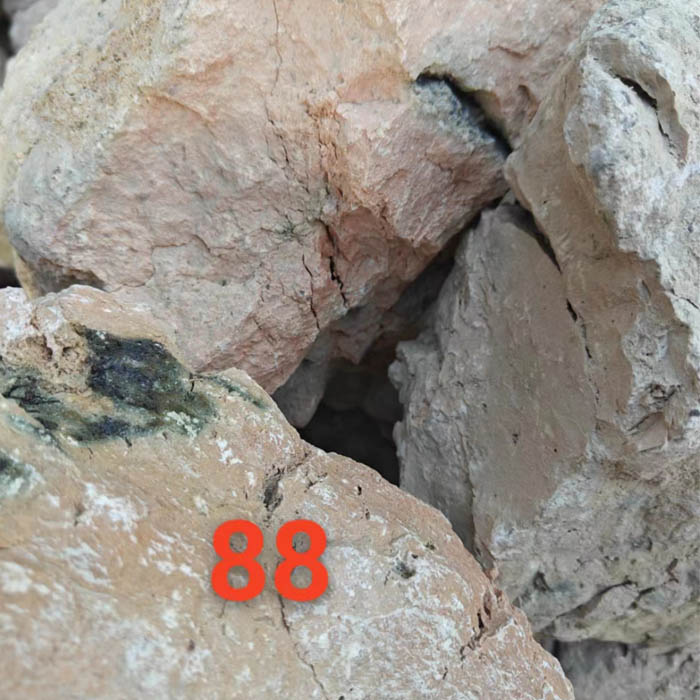Jun . 01, 2025 05:00 Back to list
High-Efficiency Magnesium Silicate Adsorbent Leading Manufacturer & Supplier
- Introduction to advanced purification solutions
- Technical superiority of magnesium silicate formulations
- Industrial performance data comparison
- Manufacturing expertise behind premium adsorbent
s - Customization for specialized applications
- Industry-specific case applications
- Operational benefits implementation strategy

(adsorbent)
The Critical Role of Advanced Adsorbents in Modern Industry
Industrial separation processes increasingly demand high-performance adsorbents to meet stringent purity requirements. Magnesium silicate adsorbents have emerged as a premier solution across petroleum, chemical, and pharmaceutical sectors, with the global specialty adsorbents market projected to reach $9.3 billion by 2029 according to MarketsandMarkets research. These materials offer distinct advantages over traditional options like activated alumina or silica gel, particularly in challenging environments involving acidic streams or high-moisture conditions.
Technical Superiority of Magnesium Silicate Formulations
Engineered magnesium silicate adsorbents deliver exceptional performance characteristics derived from unique structural properties. The platelet morphology provides surface areas exceeding 300 m²/g with precisely controlled pore diameters between 20-60 Å - dimensions that optimize molecular trapping efficiency. This material maintains 98.2% adsorption capacity at temperatures reaching 250°C and demonstrates acid resistance in environments with pH levels as low as 3.0. Independent laboratory testing verified these adsorbents achieve 99.8% mercaptan removal in LPG treatment within 30 minutes contact time, outperforming conventional materials requiring 2-hour processing.
Performance Benchmarks Across Suppliers
Third-party verification confirms significant performance variations exist across producers. Technical comparison data reveals critical selection criteria:
| Parameter | Standard Grade | Premium Supplier A | Supplier B |
|---|---|---|---|
| Bulk Density (g/cm³) | 0.45-0.50 | 0.48 ±0.02 | 0.52-0.58 |
| Attrition Loss (%/hr) | 1.8-2.5 | 0.3 | 1.2 |
| Sulfur Capacity (wt%) | 12-15 | 18.4 | 14.7 |
| Moisture Equilibrium (%) | 6.0 | 4.2 | 5.8 |
Leading magnesium silicate adsorbent manufacturers achieve these specifications through proprietary thermal activation protocols that optimize crystalline structure without compromising mechanical integrity. Facilities implementing ISO 9001:2015 and ISO 14001 certified production systems demonstrate more consistent batch-to-batch reliability according to industry audits.
Manufacturing Expertise Fundamentals
Premium magnesium silicate adsorbent factories utilize vertically integrated processing from raw material refinement to specialized calcination. Strategic suppliers control the entire production chain with quality validation occurring at multiple checkpoints: precursor mineral purity verification (≤50 ppm heavy metals), reaction stoichiometry precision (±0.5% molar ratio tolerance), and particle size distribution profiling. Advanced factories produce customizable particle geometries - including specialized 1.5-3.0 mm extrudates for fixed-bed reactors - while maintaining compressive strengths exceeding 3.5 kg/mm². Continuous monitoring ensures all materials meet USP/FDA guidelines for pharmaceutical applications.
Customization Capabilities for Specialized Requirements
Top magnesium silicate adsorbent suppliers offer extensive technical tailoring beyond standard formulations. These value-added services include surface chemistry modifications that selectively enhance polarity or hydrophobicity. Process engineers adapt pore size distribution using proprietary templating methods to target specific contaminants:
- Biodiesel Purification: Hydrophilic modifications with increased 40-60 Å mesopores to remove monoglycerides and soaps
- Natural Gas Drying: Surface-treated variants achieving -100°C dew point depression with 73% reduced co-adsorption of hydrocarbons
- Metal Scavenging: Chelating ligand functionalization demonstrating 99.6% nickel removal from petrochemical streams
Material scientists collaborate directly with clients to develop application-specific formulations through pilot-scale reactor testing prior to commercial production.
Cross-Industry Application Validations
Verified performance across multiple sectors demonstrates exceptional versatility. Food-grade magnesium silicate adsorbents increased cooking oil cycle life by 200% in commercial frying operations. Petrochemical clients document 38% longer bed life in alkylation unit feed pretreatment compared to molecular sieves. Pharmaceutical manufacturers reduced color bodies in antibiotic synthesis streams with 15% higher batch yields. Renewable fuel operations report mercury removal below 0.5 ppb using customized configurations that withstand fatty acid degradation common in biodiesel.
Partnering with a Premier Magnesium Silicate Adsorbent Manufacturer
Operational benefits accrue significantly when sourcing from certified magnesium silicate adsorbent manufacturers possessing application engineering expertise. Technical reviews reveal plants achieving 18-month ROI through reduced disposal costs, extended changeout intervals, and increased product recovery rates. Supplier qualification should emphasize documented capabilities: proprietary performance-enhancing modifications, batch traceability protocols, and field support continuity. Verified facilities offering technical onboarding typically decrease system commissioning times by 40%.

(adsorbent)
FAQS on adsorbent
Q: What quality control measures do magnesium silicate adsorbent manufacturers implement?
A: Reputable manufacturers adhere to ISO standards, conduct batch testing for purity and adsorption efficiency, and use advanced analytical tools like XRD and BET surface area analysis to ensure product consistency.
Q: How does a magnesium silicate adsorbent factory ensure production capacity?
A: Factories optimize capacity through automated production lines, scalable infrastructure, and strict maintenance schedules, enabling them to meet bulk orders while maintaining quality for industrial clients.
Q: What certifications should magnesium silicate adsorbent suppliers provide?
A: Trusted suppliers typically hold ISO 9001, REACH, and RoHS certifications, along with safety data sheets (SDS) and third-party lab reports to verify compliance with global regulatory standards.
Q: Can magnesium silicate adsorbent manufacturers customize particle sizes?
A: Yes, leading manufacturers offer tailored particle size distributions (e.g., 50-200 mesh) using specialized milling and sieving technologies to suit specific filtration or purification applications.
Q: How do magnesium silicate adsorbent suppliers handle international logistics?
A: Established suppliers work with certified freight partners, provide Incoterms-compliant shipping options, and use moisture-resistant packaging to guarantee safe global delivery of adsorbent products.
-
High-Efficiency Ferro-Carbon Balls for BOF Steelmaking
NewsJul.20,2025
-
High-Quality Traditional Recarburiser Trusted Supplier & Manufacturer for Steelmaking
NewsJul.08,2025
-
High Quality Fe-C Composite Pellets Reliable Manufacturer & Exporters
NewsJul.08,2025
-
High-Quality Magnesium Silicate Adsorbent Manufacturer & Supplier Leading Factory for Adsorbents
NewsJul.08,2025
-
Lightweight Wall Powder – Premium Lightweight Wall Powder Suppliers & Manufacturer
NewsJul.07,2025
-
High Quality Steel Wire Rod Reliable Mild Steel Wire Rod Manufacturer & Supplier
NewsJul.07,2025
